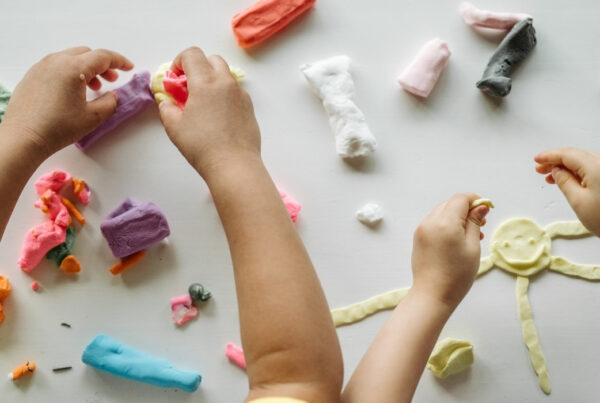Key Points:
- Many children with autism experience heightened hearing sensitivity, which can make everyday sounds feel overwhelming.
- Parents can use simple strategies, like noise-canceling headphones and predictable routines, to help their child cope.
- ABA therapy can support children in managing sensory sensitivities and learning adaptive skills.
Sometimes it feels like the world is just too loud—cars honking, dogs barking, and the hum of appliances all at once. For a child with autism, these everyday sounds can feel even more intense, even painful. Understanding autism hearing sensitivity can help parents support their child with empathy and practical tools.
Is Sound Sensitivity Common in Children with Autism?
Yes, sound sensitivity is very common in children on the autism spectrum. Many parents notice their child covering their ears, crying, or even running away from loud or unexpected noises. This is because autism hearing sensitivity often makes a child more aware of—and more affected by—sounds that others might barely notice.
Researchers believe this is related to differences in how the brain processes sensory information. Some children hear certain frequencies more acutely, while others struggle to filter out background noise. This condition is sometimes called auditory hypersensitivity or hyperacusis in autism, and it’s an important aspect of sensory processing differences.
Why Do Everyday Sounds Feel So Overwhelming?
For children with autism, the auditory system often works differently. The brain may amplify certain sounds, fail to filter out irrelevant noise, or respond more emotionally to unexpected noises.
For example:
- A vacuum cleaner may sound like a jet engine.
- A classroom buzzing with chatter and scraping chairs may feel chaotic and painful.
- Even soft but high-pitched sounds, like a whistle or alarm, may trigger panic.
This is not just a dislike of noise; it’s a neurological sensitivity that can lead to stress, fear, and even physical pain. That’s why it’s crucial for parents to recognize autism hearing sensitivity and find ways to support their child.
Signs of Sound Sensitivity to Look For
Parents often notice certain behaviors in their child before realizing they’re related to sound sensitivity. Here are common signs to watch for:
- Covering ears in noisy environments.
- Meltdowns or crying when exposed to certain sounds.
- Avoiding specific places like cafeterias, malls, or playgrounds.
- Difficulty concentrating in environments with a lot of background noise.
- Becoming startled easily by unexpected sounds.
These signs can vary from mild to severe, and they may change depending on the day, the environment, or your child’s stress level.
 How Can Parents Help Their Child Cope With Sound Sensitivity?
How Can Parents Help Their Child Cope With Sound Sensitivity?
While you can’t eliminate all noises from your child’s world, there are many practical steps you can take to make things more manageable:
Create a Calmer Environment
Start by reducing unnecessary noise at home:
- Turn off the TV or radio when not in use.
- Use rugs and curtains to dampen echoes.
- Close doors and windows to block outdoor noise.
Provide Protective Tools
Many families find relief by introducing helpful tools:
- Noise-canceling headphones or earplugs for loud environments.
- White noise machines or calming music to mask jarring sounds.
- A small, quiet space your child can retreat to when overwhelmed.
Prepare for Noisy Situations
Planning ahead can make outings less stressful:
- Talk to your child about what sounds to expect.
- Visit new places at less busy times.
- Bring headphones or favorite toys for comfort.
Teach Coping Skills
Over time, children can learn ways to tolerate or adapt to certain sounds:
- Deep breathing and calming techniques.
- Signal cards to let you know when they need a break.
- Gradual exposure to sounds in a controlled way.
These approaches not only help your child feel more comfortable but also build confidence in navigating the world.
When Should Parents Seek Professional Help?
If your child’s sound sensitivity is severe—causing extreme distress, interfering with daily activities, or leading to frequent meltdowns—it’s a good idea to talk to a professional.
Some options to consider:
- An occupational therapist experienced in sensory integration.
- An audiologist to rule out any hearing disorders.
- A behavior analyst who can help address challenges through structured therapy.
Professionals can provide assessments and personalized strategies to improve your child’s comfort and skills.
What Not to Do
While it’s natural to want to fix the problem quickly, some common mistakes can make things worse. Try to avoid:
- Forcing your child to “just get over it” or endure distressing sounds without support.
- Punishing behaviors like covering ears or leaving the room.
- Ignoring your child’s signals of discomfort.
It’s also important to remember that while autism hearing sensitivity can be challenging, it sometimes comes with unique strengths. Some children with acute hearing develop musical talents, remarkable attention to detail, or strong awareness of their surroundings. Encourage and celebrate these positives alongside supporting their challenges.
Take The Next Step With ABA Therapy In Maryland
If you’re looking for ways to help your child not just cope but thrive, consider Applied Behavior Analysis (ABA) therapy. ABA can help children with autism develop coping strategies, communication skills, and behaviors that make it easier to navigate sensory challenges—including sound sensitivity.
At Crown ABA, we specialize in supporting children with autism through compassionate and effective ABA therapy in Maryland. Our team understands the unique struggles that come with autism hearing sensitivity, and we’re here to help your child build confidence and independence.
Contact us today to learn how our tailored ABA programs can make a difference for your family. Let’s work together to help your child find calm, comfort, and joy in their world.





